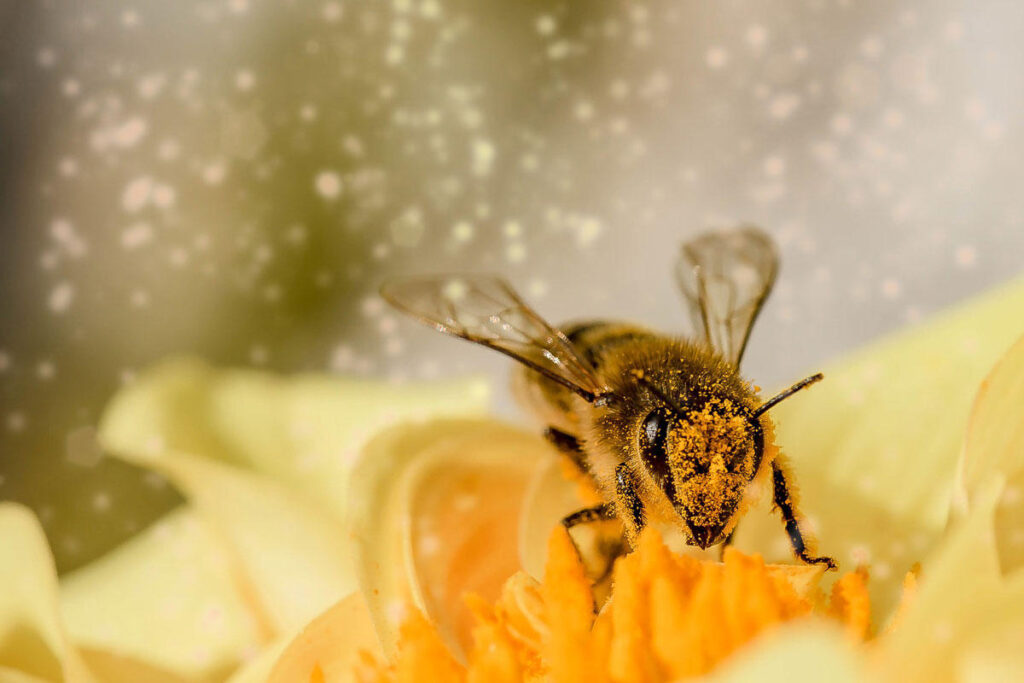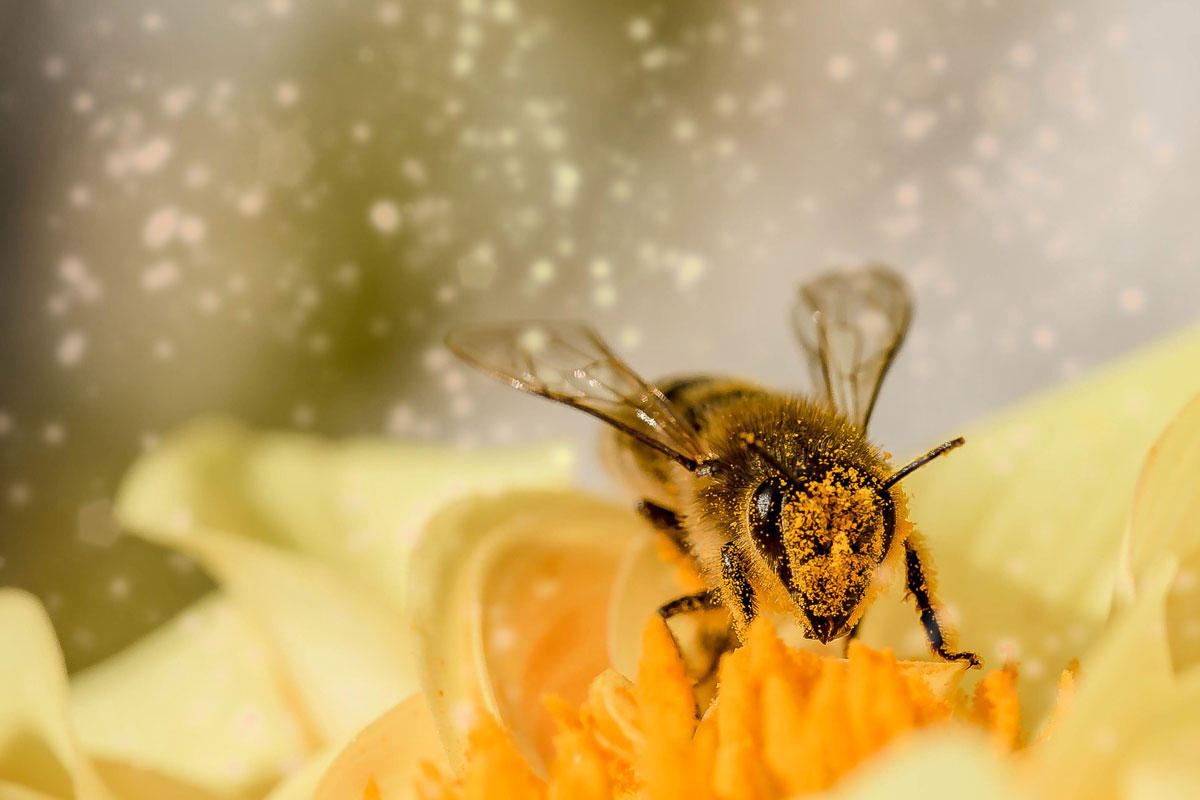
Spring and summer are finally here!
However sunny warm days, picnics and BBQ’s can be accompanied by sore and itchy eyes. If you are one of the millions of hay fever sufferers in the UK, hay fever and pollen can bring misery to any outdoor activity.
What is pollen?
Pollen is a fine yellow powder produced by most plants as an aid to reproduction. Pollinators such as bees move the pollen from one plant to another whist collecting nectar. Pollen can also be distributed by wind or rain. Different plants produce pollen at different times of the year, but pollen production usually occurs between March and late September.
What is Hay fever?
Hay fever is an allergy to pollen and can affect your nose (allergic rhinitis), breathing and eyes (allergic conjunctivitis). It can cause significant disruption to day-to-day activities causing sneezing, headaches and red, itchy eyes. Further information can be found here. Hay fever – NHS
Hay fever and eyes
Typical ocular symptoms of hay fever include:
- redness
- irritation
- itching
- white stringy discharge
- watery eyes
- swollen eyes or eyelids
What can I do for my red itchy eyes?
If possible try to avoid areas of high pollen such as trees and grass. For information about daily pollen levels, you can visit the Met office website at: Pollen forecast – Met Office.
Wearing wrap around sunglasses helps prevent pollen getting into your eyes and will also protect them from UV damage.
If you have symptoms of hay fever such as red and itchy eyes, try using a cold compress (such as cold water on a cotton wool pad or flannel) over the eyes. This often provides immediate relief.
In addition, you can use artificial tears several times a day to help soothe the eyes and wash away any pollen. It is important that these are preservative free as preservatives can cause eye irritation. At Cole Martin and Tregaskis we stock a range of preservative free artificial tears such as Thealoz Duo, Clinitas and Refresh in both multidose bottles and single use minims.
If the eyes remain itchy, mast cell stabiliser drops such as Sodium Cromoglycate can be used short term. However, these typically take a few days before the benefits are felt.
If you suffer from hay fever, washing your clothes and bedlinen frequently can also remove any residual pollen and help reduce symptoms.
When to have an eye check?
Finally, there are other conditions that have similar symptoms to hay fever. If your vision becomes blurred, the redness or discharge is only in one eye, your eye is painful, you are sensitive to bright lights or your symptoms worsen, then please call us for an appointment or phone 111.

